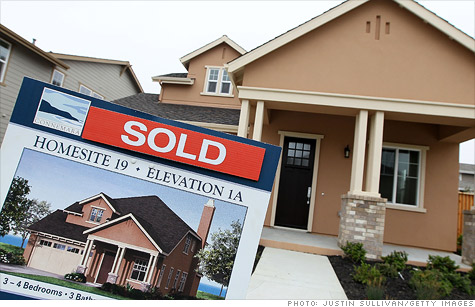National
The recent Case-Shiller report stated that home prices continued to fall in the 20 metropolitan statistical areas (MSA) that it covers-Denver is one of the MSAs. In contrast, the National Association of Realtors (NAR) reported that prices gained marginally at 0.3 percent in February, and bounced 2.5 percent in March. NAR data is gathered from MLS sales data. According to a Wall Street Journal report, "These figures take into account distressed sales, which comprise about a third of all existing-home sales today and have a dampening effect on prices, so price gains would be higher if these sales were taken out of the data."


Nationally, single-family home sales climbed 5.9 percent to a seasonally adjusted annual rate of 3.97 million in March compared to a year ago, but dipped 2.5 percent over February. The first-time home buyer and the investor make up over half the market, with the real estate investor purchasing 21 percent of the homes in March. The first-time home buyer outpaced the investor with 33 percent of the transactions in March. The stronger demand helped push median home prices up 1.9 percent over last year to rest at $163,000 in March.
Moving forward the housing market is going to stabilize and will start to rise, according to a recent report by the Urban Land Institute. The Urban Land Institute surveyed a group of 38 of the nation's leading real estate economists and analysts, which predict home prices will stop falling this year and increase 2 percent in 2013 and then continue the ascent in 2014 by 3.5 percent. If consumer sentiment continues to strengthen, then we should see more buyers enter the real estate market.
Denver
The Denver metro real estate market is pointing toward a recovery. According to a recent report from Metrolist MLS, the number of resale homes that went under contract in March soared 49.2 percent compared to last year. Prices for existing single-family homes climbed 4 percent, compared to last years average price of $284,035. The Denver metro area experienced 8,440 closings in the first quarter of 2012, compared to 7,954 in the first quarter of 2011. Finally, sellers in Denver are starting to see the pendulum swing back in their direction.
There are several positive economic indicators that are showing that the Denver real estate market may have hit bottom. One positive trend is that many real estate professionals are seeing increased competition and multiple offers on homes. The increased demand and competition has started to push prices up. As reported by Denver Metrolist, single-family home prices climbed 6.3% in March compared to February 2012, with 2,515 home sales. The condo market struggled with prices tumbling 12.2 percent compared to February 2012. There was some good news for the condo market, as sales soared 16% over February 2012 with 123 units sold.

The market is experiencing some headwinds. The historically low inventory of homes on the market at 10,325, which is off by 47 percent, compared to the 17,707 homes on the market in March 2011 is leaving some buyers frustrated. The dismal news of the national real estate market has continued to hold the market back as well. As the housing data continues to reveal an upturn in Denver home prices, the local news will soon overshadow the national news, and more sellers will enter the market to capitalize on the pent up demand.
Mortgage Rates
Freddie Mac reported that the national average for a 30-year fixed rate mortage was up to 3.95 percent in March. In February 2012, the 30-year fixed rate mortgage hit a record low at 3.89 percent since recordkeeping started in 1971. The rate in March

2011 was 4.84 percent. For some perspective, a 30-year fixed rate mortgage for a $300,000 home at 3.95% is $1879/month; compared to last year's rate at 4.84%, which would put monthly mortgage payments at $2,036 per month.
Here are three tips for getting the right mortgage from a recent article in Money magazine: 1) Credit Score Matters, 2) Get Six Quotes, and 3) Ask About Lock-In Period. Obviously, the top of the list starts with the credit score. Get a copy of your credit score, if you haven't already, and start to repair any blemishes, if needed. The ultra-low rates being advertised are for folks that have a credit score of 760 or higher.
Be certain to shop around for mortgage, considering the amount of money one will spend over the life of a home loan. Speak to mortgage brokers, local banks, and national banks to inquire about current mortgage rates and estimated closing costs. Closing costs can be up to 2 percent, so be certain to ask about fees and loan origination costs.
Lastly, make sure to find out the lock-in period on the loan. This is the time period the lender agrees not to raise the interest rate within a specific time period. Be sure to ask the lender how long you can lock a rate in, especially if you are building a new home. Some lenders will charge several hundred dollars to extend a lock-in period, so understand the lock-in terms when considering a mortgage.












